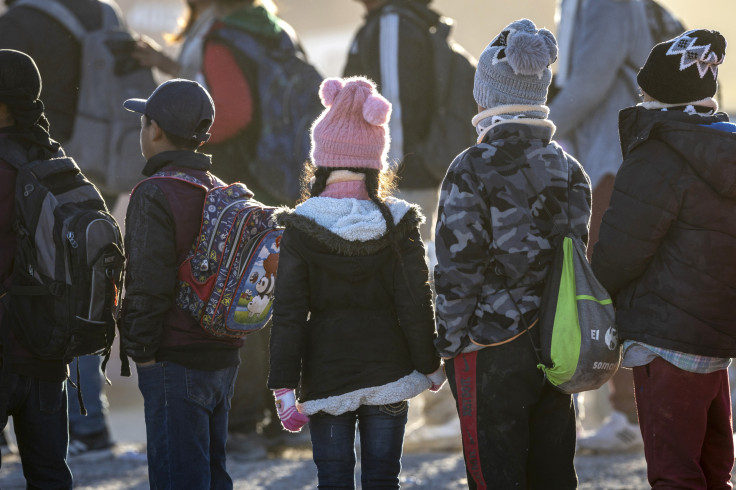
Border crossings have dropped dramatically as President Donald Trump ramps up efforts to curb unauthorized migration. However, a new report shows that migrant children are still trekking north with hopes of reaching the U.S., and on the way, facing alarming levels of violence, family separation and uncertainty.
The new report comes from Save the Children, a charity organization that seeks to improve children's living conditions across the world, and it is based on interviews with 155 migrant children and their caregivers across three of Mexico's major border cities, Ciudad Juarez, Reynosa and Tijuana.
The interviews showed that many children found themselves in overcrowded shelters, out of school and in unsafe neighborhoods alone, where they faced further dangers and continued to be denied their rights.
Children's journey often culminated in being separated from their family or loved ones, regardless of how their trip started. In Ciudad Juarez, nearly two in three children (63.5%) left home with a parent or guardian, but only about a third arrived in Mexico with someone by their side.
The number of unaccompanied children making the journey to Mexico has surged in recent years, jumping from nearly 69,500 in 2019 to more than 137,000 in 2023, driven by escalating violence, poverty and climate-related displacement. Many of these children, especially girls, are subjected to sexual and gender-based violence and exploitation. Likewise, separated children often become more vulnerable to violence, trafficking and more.
"Organized crime has many ways of finding and grabbing you. There are many areas where it's hard to run away if you're trying to escape," said Jose, a 16-year-old unaccompanied boy interviewed in Ciudad Juarez.
Education is also an increasing problem for migrant children in Mexico's northern border. Nearly three-quarters (70.3%) of the children interviewed previously attended school, but now more than half (58.1%) are now no longer learning inside a classroom. The interviewees reported administrative hurdles, security risks and a lack of formal education in shelters as some of the barriers preventing children from acquiring an un-interrupted education.
Children and immigration advocates have denounced the conditions these young migrants find themselves in, and are calling for more protections as they search for a better life away from their home countries.
"No child should find themselves in this situation, especially after enduring such a perilous journey to find safety. They need support now— including protection, access to safe shelter, education and mental health care. We are seeing families so desperate that children are being forced to consider returning to the very places they fled from. That should never be their only option," said Reena Ghalni, Chief Executive Officer of Plan International.
The new report comes as advocacy organizations filed a complaint last Thursday against the Trump administration over policies related to the release of unaccompanied immigrant children.
The complaint, filed by the National Center for Youth Law and Democracy Forward, seeks to stop new policies that have prolonged the time these children spend in federal custody. Among the plaintiffs are children who are being held despite having family members who are ready and able to care for them, Bloomberg reports.
"It's unconscionable to keep children separated from their families without any legitimate rationale," Neha Desai, an attorney and the center's managing director of children's human rights and dignity, said in a statement. "This crisis is born of policy, not necessity, and represents the latest version of family separation."
© 2025 Latin Times. All rights reserved. Do not reproduce without permission.




